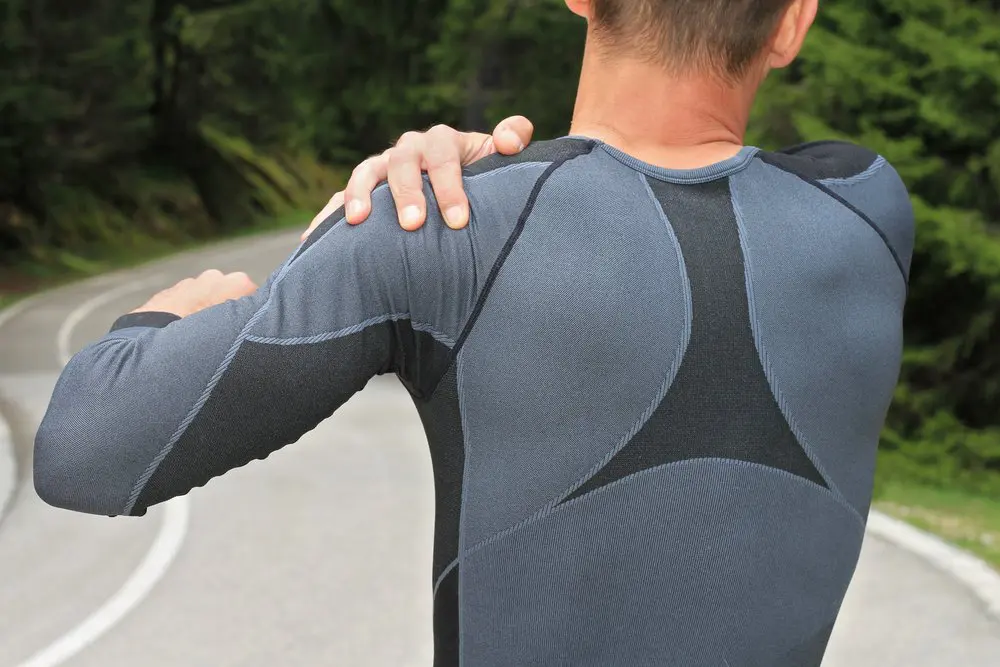
- Home
- About
- Services
- Conditions
- Symptoms
- Patients
- Reviews
- Contact

Athletes are not the only ones nowadays to experience both acute and chronic shoulder conditions. Any type of throwing, pulling, or pushing movement can lead to rotator cuff issues. The shoulder joint is a very complex joint consisting of various muscles, tendons, and ligaments in and around the area.
Dysfunction or problems in any of these structures can create a snowball effect causing pain in other areas of the shoulder. Once pain is initiated in a certain area of the body, those pain signals are sent to the brain which in turn can force you to compensate movement and positions to take pressure off the injured area. This is where other problems arise by you recruiting other accessory muscles to take place of the muscles in the injured area.
For example, if someone is experiencing right shoulder pain, they might now utilize the left shoulder joint much more than the right causing extra stress. After a while, all this built up tension can place extra stress in the left shoulder causing problems in the left as well. It is important to see your local sports doctor who specializes in rotator cuff injuries as soon as possible when dealing with shoulder injuries to begin treatment and hopefully prevent long lasting injuries or injuries to other areas in the body.
Causes: The most common shoulder injuries occur from throwing, lifting, pushing, and carrying objects. It doesn’t take much to injure the rotator cuff so it is important to use proper biomechanics when weightlifting and have good form. Using your legs while lifting objects will help tremendously in preventing shoulder injuries due to the fact that you won’t be trying to “muscle it” up. Engaging your lower extremity will help engage the large muscles in the legs placing less pressure on the upper extremities.
Symptoms: Instability, muscle spasm, tightness, weakness, numbness, tingling, and an achy type of feeling can all be experienced with shoulder injuries depending on the mechanism of injury. It is very common amongst athletes and weightlifters. This does not mean that you have to be lifting a very heavy object to injure the shoulder. Biomechanically, if you are not moving correctly and have proper form, you can over-engage your shoulder which can lead to extra pressure on the joint, muscles, tendons, and ligaments.
Treatment:**** Myofascial release, therapeutic ultrasound, chiropractic adjustments, and muscle stimulation, can help loosen up the region allowing for better circulation and mobility. Movement is key when trying to treat and rehab a rotator cuff injury. Treatment varies based on the underlying cause of the condition and which structures are involved. Shoulder mobilization exercises will get the joint moving and familiarize itself with its once, normal movement. In moderate to extreme cases, a diagnostic study, such as an MRI, is sometimes taken to rule out any type of soft tissue damage such as muscle or ligament tears. MRIs can also be extremely beneficial to see inside the joint and solidify any type of diagnosis.
Rehab: Strengthening the pecs, middle and upper traps, and deltoids can all help stabilize the shoulder and help prevent future injury. It is important to strengthen the rotator cuff muscle to help support the region and allow each individual muscle to perform as it should. Wall Angel exercise and shoulder retraction exercises using a resistance band can help with this.
You can perform the Wall Angel exercise by standing with your back against the wall, placing your elbows and wrists against the wall, and moving them up and down while squeezing your shoulder blades together. It is important to try and keep your elbows and wrists as close to the wall as possible without arching your upper or lower back. Rowing can also help strengthen the middle to upper traps and it is important to think about the muscle you are working out and not just go through the motion. Engaging your muscles while performing these strengthening exercises will allow for a better workout.
If you are struggling with pain resulting from a rotator cuff injury in Burbank, contact our sports chiropractor today to get you on the road to recovery.

Monday: 9:00am-7:00pm
Tuesday: 9:00am-7:00pm
Wednesday: 9:00am-7:00pm
Thursday: 9:00am-7:00pm
Friday: 9:00am-7:00pm
Saturday: 9:00am-2:00pm
Sunday: Closed